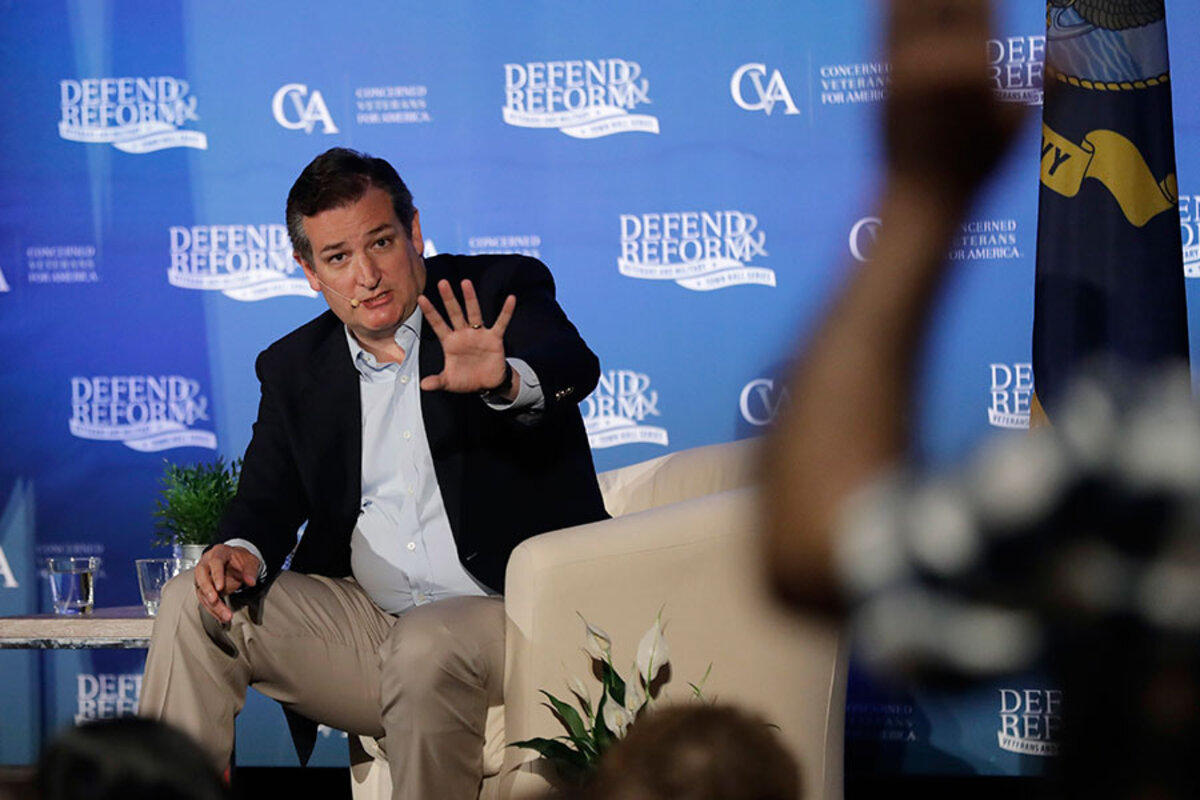Louisiana’s Republican Sen. Bill Cassidy kicked off the July 4 recess with a town hall in Baton Rouge that, at times, veered into confrontation over the GOP health-care bill that’s now stalled in the Senate.
The congenial senator, a physician, tried to dissipate chants and interruptions by reminding folks to be “civil.” A constituent shot back: “I’m civil. I don’t think it’s civil to kill people,” according to a report by The Hill newspaper.
There’s nothing quite as personal as health care to arouse the passions of voters. In the summer of 2009, angry tea party protesters swarmed town halls of Democrats working on health-care legislation. Now the tables are turned – to the point where some Republicans are simply not holding these meetings with the public, or finding a way to screen questions or restrict access.
Town halls are an American democratic tradition, a quintessential way for constituents to be heard by and to hear from their representatives. It’s possible to keep the passion, but turn down the heat so that these valuable face-to-face meetings can flourish.
Both lawmakers and constituents have legitimate concerns when hot-button issues like health care generate public pandemonium.
The shooting of Rep. Steve Scalise (R) of Louisiana and others at a GOP charity baseball practice last month shook up members of Congress, who voiced concern about security at public gatherings, including town halls. That’s in addition to being shouted down while trying to answer questions.
But many constituents, too, are frightened – genuinely worried about losing health coverage. They are organizing precisely because of their concerns, exercising their right to voice their views.
Meanwhile, those who might support their lawmaker or the GOP legislation feel as if they’re being squelched as organized opponents dominate town halls.
Both constituents and politicians need to adjust to make town halls more productive.
The guide to town halls offered by the grass-roots group Indivisible, which is organizing against the GOP health-carelegislation, urges folks to “be polite” and “look friendly or neutral.” Norms that govern conversation outside town halls ought to be just as valid inside them.
While some lawmakers are turning to telephone town halls or registering people, they need to consider the kinds of restrictions they use.
Town halls are actually not a common tool for senators, many of whom have vast distances to cover and have other ways of interacting with constituents. A telephone town hall may be a more effective way for them to reach large numbers of people – but that can also frustrate citizens, especially if it’s clear that questions are being screened.
Similarly, representatives might register people at in-person town halls in order to make sure that they are actual constituents. But blocking them by other criteria or simply limiting them invites a backlash.
“In the tradition of town halls, we should not control the numbers but use public spaces that will accommodate the level of interest and the level of passion,” says Carolyn Lukensmeyer, executive director of the National Institute for Civil Discourse in Washington.
At times like these, that argues for school auditoriums over cramped function rooms.
Ms. Lukensmeyer suggests that town halls be moderated by respected community figures so that all voices are heard, including the lawmaker’s.
And she puts forward this radical idea: Republicans and Democrats who serve on the same committee should do town halls in each other’s districts so that they get a different perspective on issues. Rep. Elijah Cummings (D) of Maryland and Rep. Jason Chaffetz (R) of Utah actually did that in 2014.
Town halls are central to American democracy. Let the voices be heard – all of them.
 Clayton Collins
Clayton Collins










